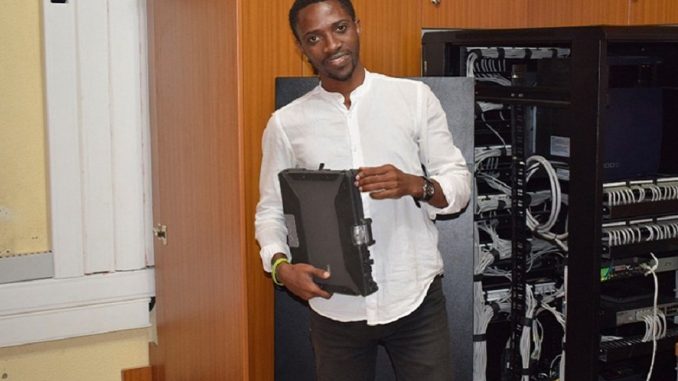
Deodate Mugenzi --- The New Times
For many people who have been complaining about the high cost of internet connection when it comes to making WhatsApp calls, they can now heave a sigh of relief as a 26-year-old Rwandan student has made a remarkable discovery that will turn things around.
Deodate Mugenzi, who is pursuing Information and Communication Technology at the Polytechnic Regional Center in Kigali, Rwanda has figured out a prototype that will enable WhatsApp users to make internal and international calls without the internet.
According to a report by local news portal New Times, Mugenzi said his prototype development was driven by the fact that internet connection is expensive in most areas of Africa, with many not able to access the internet at all.
“The problem is that many people here in Rwanda and other parts of Africa cannot afford to own smartphones that enable them to use all these internet enabled services. To address this, people ought to use services that allow them to communicate using any platform that is available to them,” Mugenzi was quoted by the New Times.
The ICT student said he generated the idea of free connection in 2017, and with the only materials available to him at the time, that is, his laptop and library books on physics, he started doing his research. What helped him more, he said, was the skills he had gathered so far in class as well as the knowledge he acquired from books on physics.
How the system works
The computer system operates using optic physics, mobile gadget communication techniques, and networking principles. It enables users of WhatsApp to directly call mobile phone numbers. Currently, only WhatsApp users can call WhatsApp users. This means that Rwandans and Africans, in general, will be able to communicate with their fellow Africans, especially those who use feature phones (phones that do not allow the use of popular internet services).
The use of smartphones in many developing countries like Africa is very limited. In Rwanda, the number of smartphone holders is well below 1.2 million people and this creates a challenge for service providers.
In order to use the platform, Mugenzi has to register the numbers of both the caller and the receiver on WhatsApp.
Challenges
The system cannot allow multiple calls at the same time. Mugenzi also needs more support to conduct intensive research and studies to enable him to scale up his system. He is currently partnering with the American embassy in Rwanda to offer innovative training to several young people in the country.
credit – face2faceafrica.com
